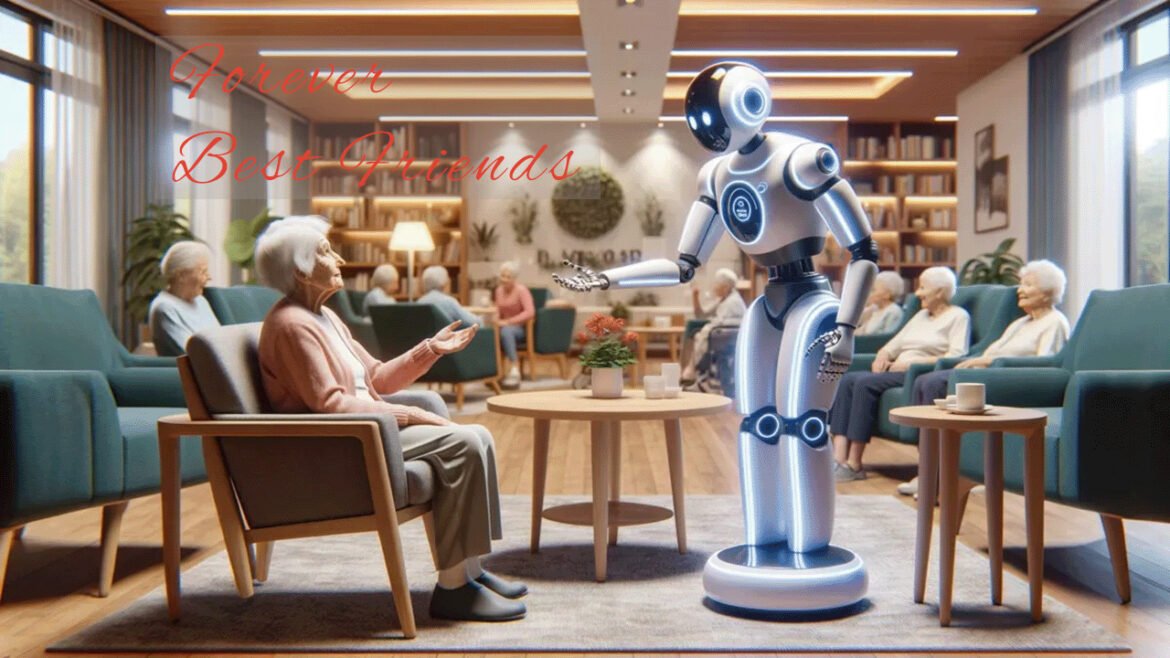By: Husam Yaghi
Forget virtual BFFs – they’re not my thing. But let’s be honest, my phone is practically glued to my hand. For sure, the same goes for most people. Phones are our go-to companions – silent partners that obey our every tap and swipe. However, despite being convenient, they’re impersonal. What if there was an AI buddy who could hang out anytime, anywhere, always ready to listen? Isn’t that an intriguing idea?
Is your phone your best friend? AI might just make it official.
Today, AI companions are evolving beyond the helpful little robots from cartoons—they’re now smarter and more sophisticated! They’re sleek, stylish, and definitely not plotting global domination. As seen in recent demos, chatbots could flirt as well. Personally, I just want a friendly, personal AI assistant that gets me. Forget order-taking – imagine an AI buddy who remembers your morning routine, suggests activities based on your mood, or even checks in to see how you’re doing.
Early signs are promising:
While research on AI companions is ongoing, some studies suggest they can have positive effects. These studies show users reporting feeling happier and less lonely after interacting with their AI buddies.
Interestingly, these empathetic digital companions are already making a difference in various settings, including nursing homes, where they provide invaluable conversation and companionship. In environments where social interaction can be limited, users report improved moods, increased engagement, and a stronger sense of connection.
Let’s explore the real-world benefits of these AI companions:
- Your Personalized Health Butler: Never miss a medication again! This AI companion tracks your health data, reminds you to take your pills, and offers gentle nudges to maintain healthy habits—like having a dedicated health coach in your pocket. Medication adherence app, PillPack, uses reminders and gamification to help users stay on track with their medication schedules.
- Your Non-Judgmental Therapist: Feeling overwhelmed? This AI companion provides a safe space to vent without fear of judgment. It can offer helpful coping mechanisms and stress management strategies, all without the hefty price tag of traditional therapy. Examples are Woebot and Koko which are designed to offer emotional support and basic coping mechanisms through conversation. While they aren’t replacements for professional therapy, they can offer a listening ear and resources.
- Grandma’s Fun and Informative Buddy: Loneliness is a major concern for seniors. This AI companion becomes a source of entertainment and interaction, offering lively games, engaging stories, and even up-to-date weather reports, all with a friendly voice to keep grandma company. While not strictly AI companions, smart speakers like Amazon Echo and Google Home with friendly voices can be used by seniors to play music, listen to audiobooks, get news updates, and even control smart home devices, offering some level of companionship.
- Your Personalized Tutor on Demand: Stuck on a math problem? This AI companion breaks down complex concepts and offers clear explanations, much like a super-powered tutor. It adapts to your learning style and provides personalized guidance to help you tackle any academic challenge. Such capabilities were demonstrated last week using the newly released GPT-4o (Omni); a notable one was the Khan Academy demo.
- The Customer Service Hero You Always Dreamed Of: Tired of frustrating customer service experiences? This AI companion acts as your advocate, offering patient and knowledgeable assistance. Imagine a calm, efficient problem-solver—far better than long hold times and robotic responses.
- Your Personal Cheerleader and Coach: Feeling unmotivated? This AI companion is your personal cheerleader and life coach in one. It sets reminders, tracks your progress, and offers encouragement to help you achieve your goals, all with a positive and supportive attitude.
The development of empathetic AI companions is accelerating, and they're no longer a distant dream. The world is embracing empathetic AI, integrating it into our daily lives to combat loneliness and enhance well-being.
The future of connection is here, and it comes with a digital companion who genuinely cares. It’s time to redefine what it means to have a friend and welcome AI into the warm circle of connection. After all, in a world that can be isolating, a little empathetic tech can go a long way.
Disclaimer: “This blog post was researched and written with the assistance of artificial intelligence tools.”
